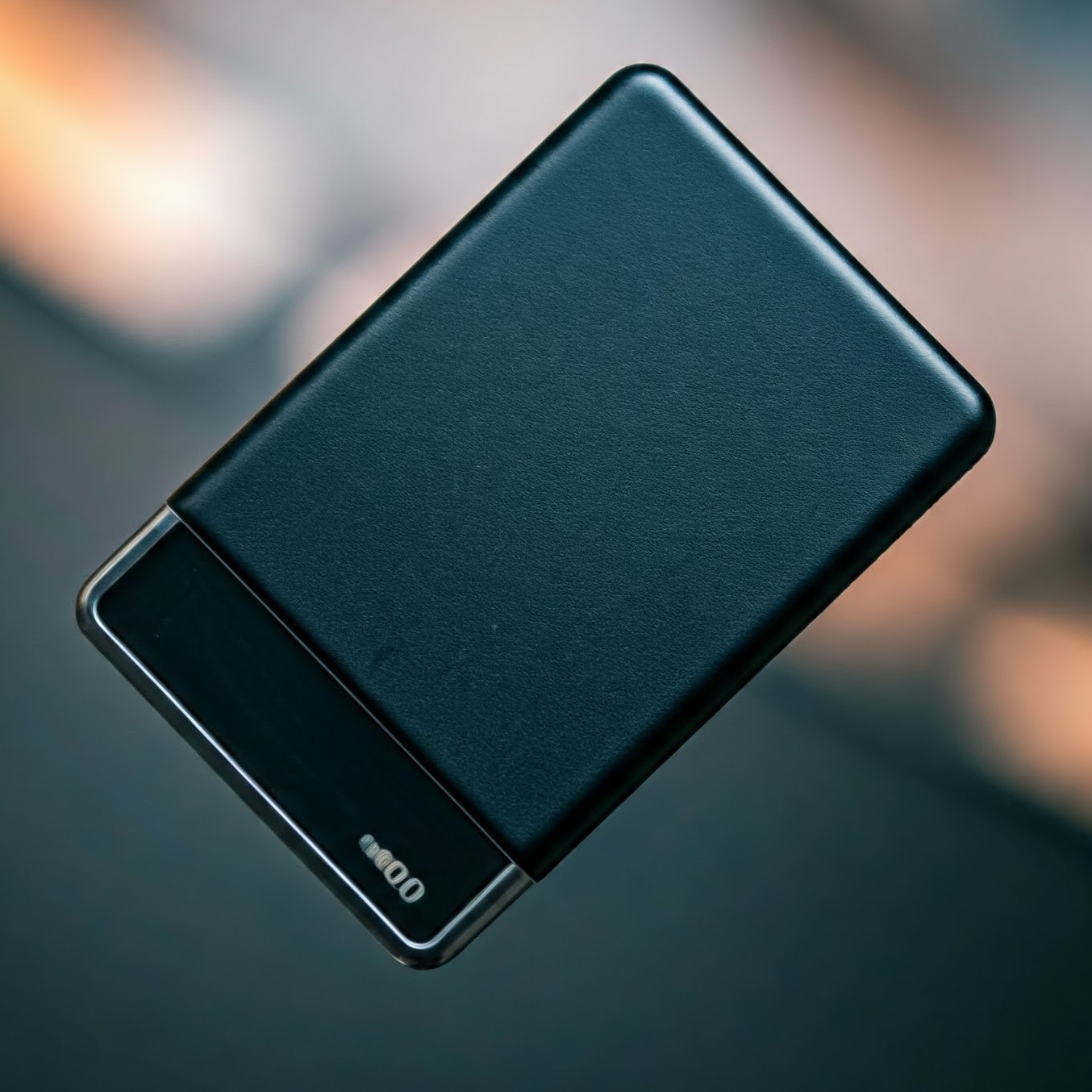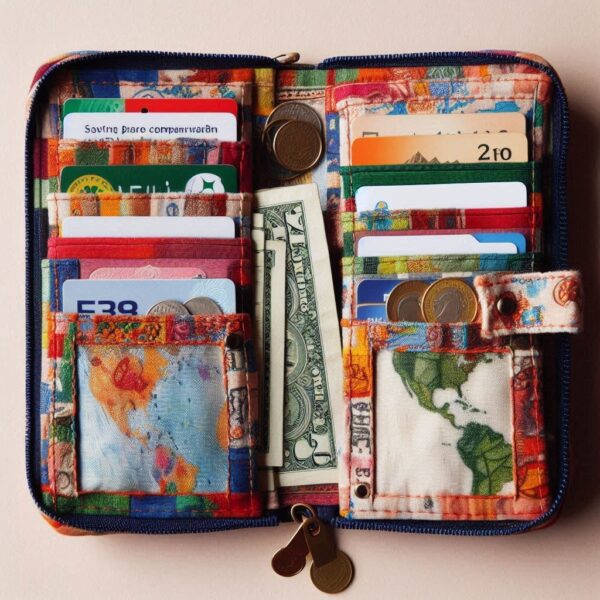A crypto wallet is a tool that allows you to store, send, and receive cryptocurrencies like Bitcoin and Ethereum. Unlike a traditional wallet that holds physical cash, a crypto wallet stores your private keys, which are the passwords that give you access to your digital assets on the blockchain1.
Thank you for reading this post, don’t forget to subscribe!
Please support the blog by clicking ads and join the monetize programs , coming soon.
There are different types of crypto wallets:
- Paper Wallets: These involve printing your private keys on a piece of paper and storing it in a safe place. They are secure from online threats but can be easily lost or damaged.
- Hardware Wallets: These are physical devices, like USB drives, that store your private keys offline. They offer a good balance between security and convenience.
- Online Wallets: These are software-based wallets that store your keys online. They are easy to use but are more vulnerable to hacking and phishing attacks12.

Crypto Wallets: Your Digital Key to Cryptocurrencies
A cryptocurrency wallet is essentially a digital device or software program that stores and manages your private keys. These private keys are the passwords that grant you access to your cryptocurrency holdings, which are actually stored on a blockchain network.
Key Functions of a Crypto Wallet:
- Storing Private Keys: The primary function is to securely store your private keys. Losing these keys is like losing access to your bank account, as there’s no way to recover them.
- Sending and Receiving Crypto: You can use your wallet to send cryptocurrency to others or receive it from them. The transaction is verified on the blockchain network using your private key.
- Interacting with DApps: Many wallets allow you to interact with decentralized applications (DApps) built on the blockchain, such as DeFi platforms or NFT marketplaces.
Categories of Crypto Wallets:
- Hot Wallets: These are internet-connected wallets, such as mobile apps or browser extensions. They offer convenience but are generally less secure due to their online nature.
- Cold Wallets: These are offline wallets, typically hardware devices like USB sticks. They are considered more secure as they are not connected to the internet, making them less vulnerable to hacking.
Choosing the Right Wallet:
The best wallet for you depends on your security needs and usage habits. If you’re just starting out, a hot wallet might be sufficient. However, if you’re holding a significant amount of cryptocurrency, a cold wallet is a safer option.
Important Considerations:
- Security: Always prioritize security when choosing a wallet. Look for wallets with strong encryption and two-factor authentication features.
- Supported Cryptocurrencies: Ensure the wallet supports the cryptocurrencies you plan to hold.
- User Interface: A user-friendly interface can make managing your crypto easier.
- Fees: Some wallets charge fees for transactions or other services.
- Backup: It’s crucial to back up your wallet’s seed phrase or private keys to avoid losing access to your funds.
By understanding the different types of crypto wallets and their key features, you can make an informed decision and securely manage your digital assets.
Each type of wallet has its pros and cons, so the best choice depends on your needs and how you plan to use your cryptocurrency. Do you have a specific type of wallet in mind, or are you looking for recommendations?
Are you thinking to transform to crypto finance future and looking for wallets to keep your money? Read on to know more about wallets of each type.

Hardware Offline Crypto Wallets: Your Digital Fortress
Hardware wallets are physical devices that store your cryptocurrency private keys offline. This means they aren’t connected to the internet, making them significantly more secure than online (hot) wallets. They’re often compared to a physical safe for your digital assets.
Key Features:
- Offline Storage: The most crucial feature is their offline nature. This prevents hackers from accessing your private keys.
- Secure Element: They typically contain a secure element, a specialized chip designed to protect sensitive data.
- User Interface: Most hardware wallets have a small screen and buttons for navigation.
- Seed Phrase: A seed phrase, a series of words, is used to recover your wallet in case of loss or damage.
Top Examples of Hardware Wallets:
- Ledger Nano S/X: These are popular choices known for their security and ease of use. They support a wide range of cryptocurrencies and offer additional features like Bluetooth connectivity (Nano X).
- Trezor Model T: Trezor is another well-respected brand. The Model T is a more advanced option with a larger screen and additional features like a built-in camera for QR code scanning.
- BitBox: BitBox wallets are known for their focus on privacy and security. They offer features like a secure element and support for various cryptocurrencies.
- KeepKey: KeepKey wallets are another popular choice with a focus on security and ease of use. They support a wide range of cryptocurrencies and offer additional features like a built-in camera for QR code scanning.
Choosing the Right Hardware Wallet:
When selecting a hardware wallet, consider the following factors:
- Supported Cryptocurrencies: Ensure the wallet supports the cryptocurrencies you plan to hold.
- Security Features: Look for wallets with strong security features like a secure element and a reputable manufacturer.
- User Interface: A user-friendly interface can make managing your crypto easier.
- Price: Hardware wallets vary in price. Choose one that fits your budget and needs.
By using a hardware wallet, you can significantly enhance the security of your cryptocurrency holdings and protect your digital assets from potential threats.
Online Crypto Wallets: Convenience at the Cost of Security
Online (hot) wallets are software programs or web-based applications that store your cryptocurrency private keys. They offer convenience as you can access them from anywhere with an internet connection. However, they are generally considered less secure than hardware wallets due to their online nature.
Key Features:
- Internet Access: You can access your wallet from any device with an internet connection.
- Variety of Options: Online wallets come in various forms, including web wallets, mobile apps, and browser extensions.
- Ease of Use: They are often easier to set up and use compared to hardware wallets.
Top Examples of Online Wallets:
- MetaMask: A popular browser extension and mobile app that supports Ethereum and other Ethereum-based tokens.
- MyEtherWallet: A web-based wallet primarily for Ethereum and ERC-20 tokens.
- Coinbase Wallet: A mobile app and browser extension that supports a wide range of cryptocurrencies.
- Trust Wallet: A mobile app that supports a variety of cryptocurrencies and decentralized applications.
- Exodus: A desktop wallet that supports multiple cryptocurrencies and offers additional features like staking and exchange.
Choosing the Right Online Wallet:
When selecting an online wallet, consider the following factors:
- Supported Cryptocurrencies: Ensure the wallet supports the cryptocurrencies you plan to hold.
- Security Features: Look for wallets with strong security features like two-factor authentication and cold storage options.
- User Interface: A user-friendly interface can make managing your crypto easier.
- Fees: Some wallets charge fees for transactions or other services.
Important Security Considerations:
- Phishing: Be cautious of phishing scams that attempt to steal your login credentials.
- Malware: Protect your device from malware that can compromise your wallet.
- Backup: Always back up your seed phrase or private keys to avoid losing access to your funds.
While online wallets offer convenience, it’s essential to prioritize security. Consider using a combination of online and hardware wallets to balance convenience and security. If you’re holding a significant amount of cryptocurrency, it’s recommended to use a hardware wallet for long-term storage.
Crypto Wallet Private Keys: The Foundation of Your Digital Assets
Cryptocurrency wallets are essentially digital containers that hold your private keys. These private keys are the cryptographic codes that grant you access to your cryptocurrency holdings, which are stored on a blockchain network.
Key Points:
- Unique for Each Wallet: Each wallet generates a unique set of private keys.
- Secret: Private keys should always be kept secret. Sharing them with anyone could lead to the loss of your funds.
- Mathematical Function: Private keys are generated using a mathematical function that ensures they are unique and secure.
- Access to Public Address: The private key corresponds to a public address, which is like your bank account number. You can share your public address with others to receive funds.
Importance of Private Keys:
- Ownership: Possession of the private key proves ownership of the cryptocurrency associated with the corresponding public address.
- Transactions: You use your private key to sign transactions, authorizing the transfer of cryptocurrency from your wallet to another address.
- Security: The security of your cryptocurrency depends on the safekeeping of your private key. If someone gains access to your private key, they can control your funds.
Safeguarding Your Private Keys:
- Hardware Wallets: Store your private keys on a hardware wallet, a physical device that keeps them offline and secure.
- Seed Phrase: Back up your wallet’s seed phrase, a series of words that can be used to recover your private key if your wallet is lost or damaged.
- Avoid Sharing: Never share your private key with anyone, even trusted friends or family.
By understanding the importance of private keys and taking steps to protect them, you can ensure the security of your cryptocurrency holdings.


Leave a Reply